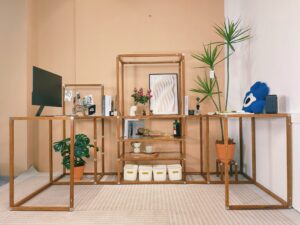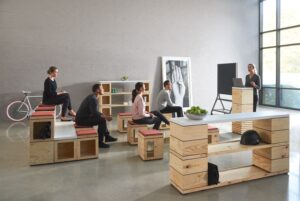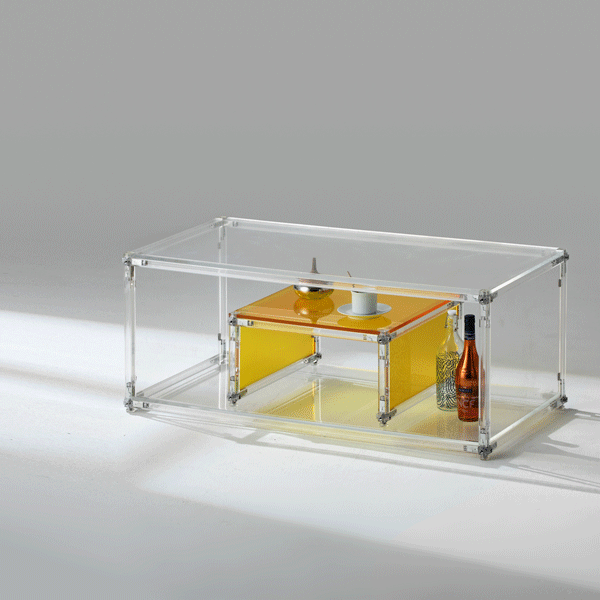In today’s society, environmental consciousness has become a global focal point. The home industry is undergoing a gradual transformation, with more people recognizing the importance of sustainable development. This shift is evident not only in the choice of eco-friendly materials but also in the efficient use of energy and waste management in the design and manufacturing processes. In this context, modular furniture has naturally emerged as a revolutionary solution, meeting people’s demands for eco-friendliness, flexibility, and personalization.
The Rise of Environmental Awareness
In the past, the manufacturing of many home products often had severe environmental impacts, including deforestation and chemical emissions. However, with the rise of environmental awareness, people are now seeking green and sustainable home products, prompting the home industry to move toward more sustainable practices.
The Unique Advantages of Modular Furniture
Modular furniture stands out due to its eco-friendly, sustainable, and flexible nature. Firstly, it often utilizes renewable resources or recycled materials, reducing dependence on natural resources. Secondly, its modular design allows products to be easily disassembled and assembled, reducing space requirements during transportation and storage, thereby minimizing carbon emissions. Additionally, the customization options of modular furniture mean more precise production, reducing waste significantly.
The Future of Personalized Customization
Modular furniture is not just an environmentally friendly choice; it offers a more personalized and flexible home solution. Individuals can customize furniture according to their needs and space requirements, breaking free from the constraints of standardized products. This trend of personalized customization aligns with the modern consumer’s desire for tailored solutions, transforming homes from mere living spaces into expressions of personality and taste.
The Future Prospects of Modular Furniture
With the deepening of environmental awareness, modular furniture is poised to play a more significant role in the home industry. It represents a sustainable future, addressing both environmental concerns and individual preferences. Fueled by this trend, we believe modular furniture will continue to innovate, bringing forth more possibilities for people’s living spaces. It will lead further changes in the home industry, offering solutions that are greener, more flexible, and personalized.
The widespread adoption of environmental consciousness and the increasing demand for personalized customization are propelling modular furniture into a thriving future. It’s not just a product choice; it’s a reflection of a lifestyle, guiding the home industry toward a greener, more flexible, and more personalized direction.





